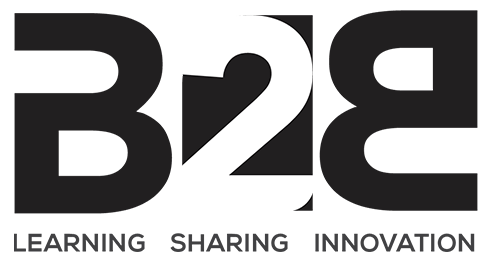What is the All India Council for Technical Education (AICTE)’s vision for the future of technical education in India? Please walk us through your role as Chief Coordinating Officer (CCO) in fulfilling AICTE’s vision.
AICTE’s vision is to be a world-class organisation, leading technological and socio-economic development of the country by enhancing the global competitiveness of technical manpower, and by ensuring high-quality technical education to all sections of the society.
As the CCO, I am entrusted with the critical responsibility of aligning AICTE’s vision with actionable strategies implementation with the use of the latest technologies that have a significant impact on the technical education landscape of the modern era and are also in line with the frequent updates in global requirements.
I also have responsibility to implement and execute the National Educational Alliance for Technology (NEAT) scheme (Under the Ministry of Education-MoE), which is to verify, aggregate and deliver EdTech solutions directly to the students, giving them wide choice to select the technological solution that would suit their requirement, thereby, improving their overall learning outcomes. Through this scheme, 25 per cent of sales of registered course coupons are distributed to economically and socially weaker sections of students free of cost.
Along with this, I am handling the National Internship Portal’s administrative and technical part. The portal is aligned with the vision of Prime Minister of India, Narendra Modi Ji to provide skilled talent to the world. The portal is a one-stop solution for internship opportunities in the government sector, private companies/industries and research organisations.
As a CCO of AICTE and CEO of Anuvadini Artificial Intelligence (AI), I created a unique global tool with AI for the translation of text, audio and video. The idea of development of Anuvadini AI is also aligned with the National Education Policy (NEP) 2020 to provide the study material in regional languages to rural and remote area students by removing the language barrier and making India a developed country by 2047.
How do you ensure coordination among AICTE, educational institutions and other stakeholders to drive impactful policies?
A deliberate and cooperative approach is required to enhance collaboration among AICTE, educational institutions and other stakeholders like EdTech companies, industries, ministries and government departments in order to provide real-time opportunities for internships, skilling upskilling and employability skill enhancement.
Under my supervision, over 75,000 organisations, including government departments, ministries, private organisations, NGOs, EdTech companies and industries collaborated with AICTE to offer internships, apprenticeships, skilling courses and training on real-time projects.
Due to this collaboration, more than 55 lakh students are benefitted by internships in real-time projects like road construction, building construction, semiconductor, robotics, AI and Machine Learning (ML) and other emerging areas of technology. To build a collaborative network, transparent information sharing, real-time updates and feedback gathering were opted.
The coordination is maintained through a multi-faceted and structured framework to ensure a seamless collaboration. Official circulars, newsletters and online updates are the regular mediums of communication ensuring that policymakers, academic leaders, industrialists, government agencies, global institutions and other stakeholders are communicated and updated about the policies and initiatives of the AICTE. Further, dedicated helplines and support desks have been created for better accessibility and timely guidance.
Workshops, webinars and policy review meetings are the key components of our engagement strategy. These events are established to ensure proper circulation of information, to address concerns and alignment of goals of educational institutions and other stakeholders with the objectives of AICTE.
Kindly tell us about some recent initiatives by the council aimed at improving technical education in India.
AICTE has launched various initiatives to enhance the accessibility, quality and relevance of technical education across India. These programmes aim to bridge learning gaps, foster innovation and improve employability skills. The initiatives undertaken by AICTE/Ministry of Education under my technical as well administrative supervision other than NEAT, NEP, Anuvadini AI are as follows:
- National Apprenticeship Training Scheme (NATS): A flagship programme providing technical graduates with industry training to enhance employability and technical expertise.
- AICTE placement portal: This platform helps rural and tribal students access employment opportunities by connecting them with industries and academic institutions.
- Prerna: An experiential learning programme aligned with NEP 2020, focusing on value-based education through hands-on activities and the latest technologies.
- Proficience: A skills initiative offering upskilling, certifications, and lifelong learning opportunities to professionals and students.
- Parakh: An outcome-based assessment framework promoting critical thinking, problem-solving and employability through practical knowledge application.
Collectively, these initiatives reflect AICTE’s commitment to transforming technical education into an inclusive, innovative, and industry-relevant system that meets societal needs.
What steps is AICTE taking to make technical education more accessible to students from rural and economically weaker backgrounds?
In a modern era where practical experience is as crucial as theoretical knowledge, internships and placements serve as the gateway for students to step into the professional world. Acknowledging this, AICTE has launched an internship and placement portal, which is a significant step forward.
Placement portals act as the hub where opportunity and talent collide. Acknowledging their importance, AICTE has set out to improve and simplify these platforms. The council ensures that placement portals are reliable, easy to use and efficiently close the gap between companies and students by working with academic institutions. AICTE placement portal developed specifically for village and tribal areas. Students can be a powerful tool to help bridge the gap between urban and rural areas in terms of access to employment opportunities.
In the highly competitive job market of today, accountability and openness are critical. The council’s involvement in placement portals goes beyond simple assistance; it preserves the values of openness and responsibility. The precision and dependability of placement data is guaranteed by AICTE, which enforces uniform reporting processes and performance measures.
Industry and academia working together is essential to foster innovation and produce workers who are prepared for the future. AICTE provides real-time data into industry trends, skill requirements and job market dynamics to placement portals through industry alliances and employer engagement activities.
The AICTE is dedicated to advance inclusivity and diversity, and this commitment includes placement portals. Placement portals are engines of social mobility because AICTE guarantees equal chances and access to all elements of society, regardless of gender, race or socioeconomic status. With focussed outreach campaigns and mentorship programmes, AICTE creates an environment that allows all aspiring professionals to reach their greatest potential.
How is AICTE working to promote diversity and inclusion, particularly for women in technical and STEM education fields?
AICTE has implemented a number of programmes to empower and assist female students pursuing technical education. The Pragati Scholarship Scheme is one of the main programmes, which attempts to give money to deserving female students who are studying technical education. Up to 10,000 scholarships are given out each year under this programme to promote more women’s involvement in technical disciplines. To improve chances for women, AICTE also works with other organisations. For instance, through experiential learning, the TechSaksham programme prepares under-privileged female students for professions in technology by concentrating on skill development. The council’s collaboration with Amazon’s Women of the World (WoW) programme, which gives female engineering students the tools they need to thrive in the technology sector, is another noteworthy endeavour.
On International Women’s Day 2024, AICTE introduced a scholarship programme designed only for females from economically disadvantaged backgrounds, providing 3,000 students with Rs 7.5 crore in financial aid every year. AICTE’s focus on expanding the number of women in STEM disciplines through programmes like industry partnerships, mentorship programmes and internships complements these efforts by enhancing the accessibility and inclusivity of technical education for female students.
Through these targetted efforts, AICTE is working towards creating a more equitable and inclusive technical education environment, ensuring that women play a vital role in shaping the future of STEM and technical fields.
Looking ahead, what are the key areas of focus for AICTE to ensure India remains competitive in global technical education?
The initiatives like new courses in emerging technologies, collaborations and skill-based education are paramount to support the country’s endeavours to foster digitisation. Upon successful implementation of such initiatives, AICTE aims India to achieve the following:
- New UnderGraduate and PostGraduate-level courses in emerging technologies: AICTE believes technical education should include emerging technologies such as AI, blockchain, quantum computing, robotics, ML and renewable energy. By starting new UG and PG-level degree and diploma-level programmes in such technologies, India can increase students’ ability to compete in the global market.
- Facilitating national and international collaborations: AICTE is allowing Indian universities to cooperate with national and international organisations by exposing students to inter-cultural experiences through research, internship, industry visits, exchange programmes and learning initiatives. Providing such opportunities will invite foreign collaborations for the best practices to be initiated in India and also allow students in India to become a part of global research.
- AICTE-INAE travel Grant Scheme: The AICTE-INAE Travel Grant Scheme supports Indian engineering students and faculty attending international conferences for academic and research excellence. The scheme provides financial assistance for travel, registration fees and accommodation, enabling global exposure, collaboration and knowledge-sharing opportunities.
- Promoting sustainability: AICTE aims to integrate sustainability conscience within the mode of operation of students to maintain balance with future developments.
dorina@thefoundermedia.in

























































